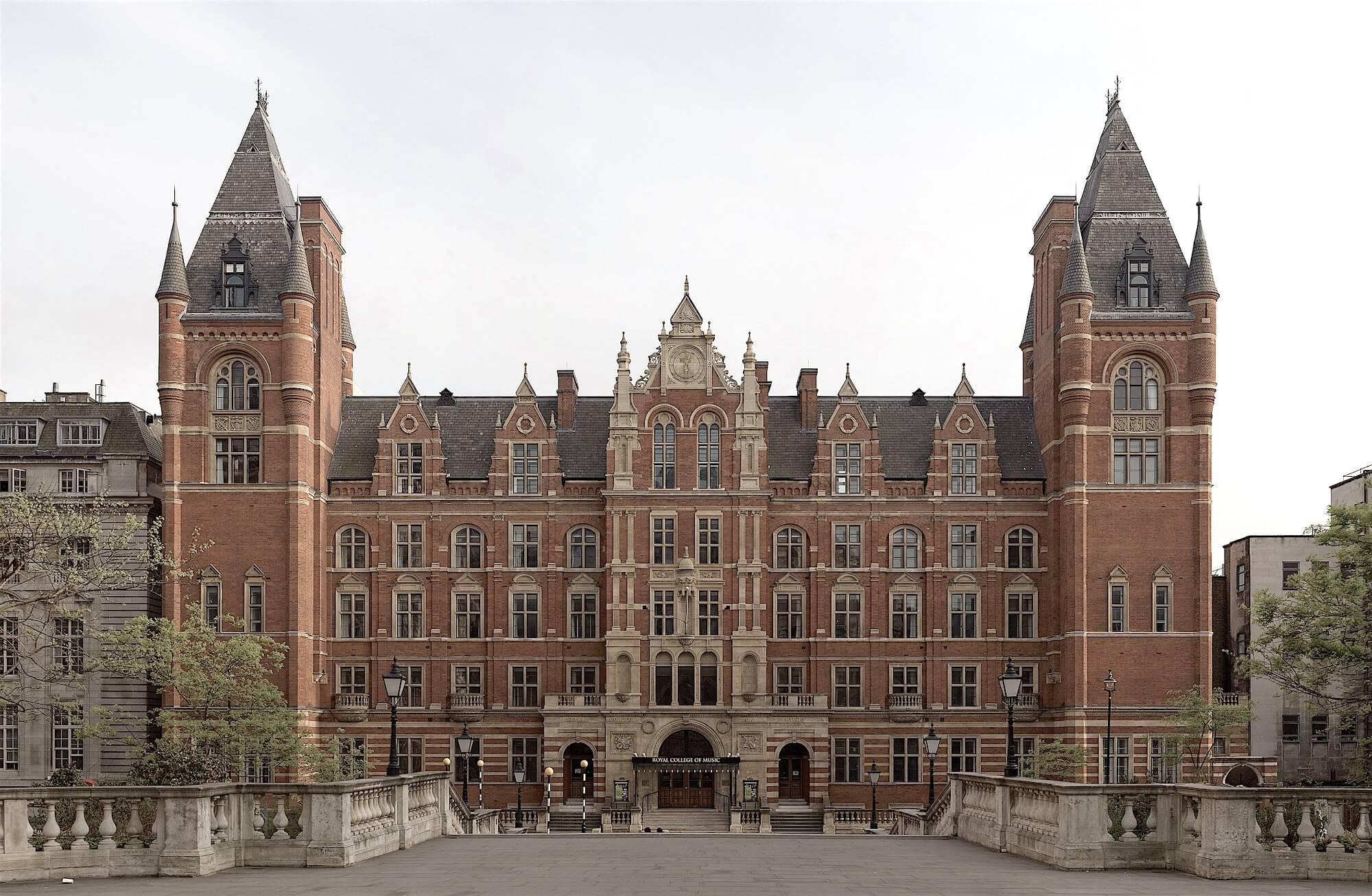From critics to algorithms: the fading voice of elites in the world of music
Not so long ago, the music industry was a “closed club”. It was hard to get into it, and the public taste was under the control of a small group of " enlightened " experts.
But every year the opinion of the elites is becoming less and less valuable, and playlists and algorithms have replaced the critics. We will tell you how this happened. Photo Sergei Solo / Unsplash

In the European musical world for a long time there were no rules, hierarchies and divisions by professions to which we are accustomed. There was not even a familiar model of musical education. The role of music schools was often played by churches where children studied under the guidance of an organist - that is how the ten-year-old Bach was educated.
The word "conservatory" appeared in the 16th century and meant a children's shelter , where students were taught music. Conservatories that meet the modern definition of the term - with an entrance competition, a clear educational program and career prospects - spread throughout Europe only in the 19th century.

Photo by Matthew Cramblett / Unsplash
The largest music customers were the church and the nobility. The first needed spiritual works, the second needed entertaining ones. It was they who controlled what kind of music the light listens to - even if they themselves were superficial to music.
Moreover, at that time, the life cycle of each composition was, by modern standards, very short. “Rock stars” then were virtuosos - touring musicians who demonstrated outstanding technical abilities. They updated their repertoire every year - in the new season new works were expected from them.
That is why, as writesCambridge professor and pianist John Rink (John Rink) in his essay from the collection "The Cambridge Music History", composers often divided their work into short-lived "hits" for the repertoire of concert performers and long-playing "imperishable". The production of music in this context stood on the conveyor.
The established order began to change at the turn of the 18-19 centuries, when the very attitude of educated Europeans to music was transformed. Thanks to romantic influences, the concept of “high” music has spread widely . The elites began to see in the European culture of instrumental works something absolute, different from the trends of volatile fashion.
Like any noble occupation, “high” music needed systems that would maintain and protect its purity. The rich patrons of the arts (from nobles and industrialists to kings), whose work has become more prestigious than ever, have taken up this task .

Photo by Diliff / Wiki
It was with their money that educational institutions and cultural institutions were built, which are now the core of the classical music world. Thus, the elite not only defended its place in European musical culture, but also took its development under its control.
The first newspapers that published reviews of musical works also began to be published at the end of the 18th century - at about the same time as the usual conservatories, philharmonic societies, and music schools appeared. If educational institutions set the bar for performing and composing quality, then critics called it into question.
Their task - to distinguish the eternal from the transient - emphasized the timelessness of high music in the academic tradition. Already in the twentieth century, guitarist Frank Zappa caustically noted that "talking about music is like dancing about architecture." And rightly so.
Musical criticism originates in musicology, aesthetics and philosophy. In order to write a good review, you must have knowledge in all three areas. The critic must understand the technical aspects of the work of the musician and composer, make aesthetic judgments and feel the connection of the work with the “absolute” - beyond the limits of specificity. All this makes music criticism a very specific genre.
Soon after its appearance, music criticism flowed from specialized publications to the pages of the popular press - music critics managed to establish themselves as an integral part of journalistic culture. Before the distribution of sound recordings, music journalists reviewed the performances, in particular, the premieres.
Given the need to understand the technical side of composer skill, the role of critics was often played by the composers themselves. The review referred to above was written by Caesar Antonovich Cui - a member of the “Mighty Heap”. Also , Rimsky-Korsakov and Schumann were famous for their reviews .
Musical journalism has become an important element of the new musical ecosystem of the 19th century. And, like other aspects of this young “industry”, it was also controlled by an educated, privileged elite with academic standards.
In the twentieth century, the situation will change dramatically: technology will replace the elites , and critic music composers will be replaced by professional music journalists and DJs. Photo frankie cordoba

/ Unsplash
About what happened with musical criticism during this period, we will tell in our next article. We will try to prepare it soon.
PS Our recent Shine and Poverty series.
What else do we recommend reading with us:
 Radio recorders from the USSR: a brief history of audio systems in Soviet cars
Radio recorders from the USSR: a brief history of audio systems in Soviet cars
 Russian radio performances: from "Baby Monitor" to "Solaris"
Russian radio performances: from "Baby Monitor" to "Solaris"
 "They didn’t shoot": audio projects in which something went wrong
"They didn’t shoot": audio projects in which something went wrong
 What started and how it ended history of record players for cars
What started and how it ended history of record players for cars
But every year the opinion of the elites is becoming less and less valuable, and playlists and algorithms have replaced the critics. We will tell you how this happened. Photo Sergei Solo / Unsplash

Music industry until the 19th century
In the European musical world for a long time there were no rules, hierarchies and divisions by professions to which we are accustomed. There was not even a familiar model of musical education. The role of music schools was often played by churches where children studied under the guidance of an organist - that is how the ten-year-old Bach was educated.
The word "conservatory" appeared in the 16th century and meant a children's shelter , where students were taught music. Conservatories that meet the modern definition of the term - with an entrance competition, a clear educational program and career prospects - spread throughout Europe only in the 19th century.
Composer activity for a long time was also not particularly prestigious. Many popular classics now earned their living as performers, conductors and teachers.
Before Bach's music was popularized by Mendelssohn, the composer was remembered, first of all, as an outstanding teacher.

Photo by Matthew Cramblett / Unsplash
The largest music customers were the church and the nobility. The first needed spiritual works, the second needed entertaining ones. It was they who controlled what kind of music the light listens to - even if they themselves were superficial to music.
Moreover, at that time, the life cycle of each composition was, by modern standards, very short. “Rock stars” then were virtuosos - touring musicians who demonstrated outstanding technical abilities. They updated their repertoire every year - in the new season new works were expected from them.
That is why, as writesCambridge professor and pianist John Rink (John Rink) in his essay from the collection "The Cambridge Music History", composers often divided their work into short-lived "hits" for the repertoire of concert performers and long-playing "imperishable". The production of music in this context stood on the conveyor.
The birth of academic music
The established order began to change at the turn of the 18-19 centuries, when the very attitude of educated Europeans to music was transformed. Thanks to romantic influences, the concept of “high” music has spread widely . The elites began to see in the European culture of instrumental works something absolute, different from the trends of volatile fashion.
Now we call this approach to music academic.
Like any noble occupation, “high” music needed systems that would maintain and protect its purity. The rich patrons of the arts (from nobles and industrialists to kings), whose work has become more prestigious than ever, have taken up this task .

Photo by Diliff / Wiki
It was with their money that educational institutions and cultural institutions were built, which are now the core of the classical music world. Thus, the elite not only defended its place in European musical culture, but also took its development under its control.
Musical criticism and journalism
The first newspapers that published reviews of musical works also began to be published at the end of the 18th century - at about the same time as the usual conservatories, philharmonic societies, and music schools appeared. If educational institutions set the bar for performing and composing quality, then critics called it into question.
Their task - to distinguish the eternal from the transient - emphasized the timelessness of high music in the academic tradition. Already in the twentieth century, guitarist Frank Zappa caustically noted that "talking about music is like dancing about architecture." And rightly so.
Musical criticism originates in musicology, aesthetics and philosophy. In order to write a good review, you must have knowledge in all three areas. The critic must understand the technical aspects of the work of the musician and composer, make aesthetic judgments and feel the connection of the work with the “absolute” - beyond the limits of specificity. All this makes music criticism a very specific genre.
Soon after its appearance, music criticism flowed from specialized publications to the pages of the popular press - music critics managed to establish themselves as an integral part of journalistic culture. Before the distribution of sound recordings, music journalists reviewed the performances, in particular, the premieres.
The reaction of critics to the premiere of the composition could determine its future fate. For example, after the defeat of the first Rakhmaninov’s symphony on the pages of the St. Petersburg edition of News and Exchange Newspaper, the work was not performed until the composer's death.
Given the need to understand the technical side of composer skill, the role of critics was often played by the composers themselves. The review referred to above was written by Caesar Antonovich Cui - a member of the “Mighty Heap”. Also , Rimsky-Korsakov and Schumann were famous for their reviews .
Musical journalism has become an important element of the new musical ecosystem of the 19th century. And, like other aspects of this young “industry”, it was also controlled by an educated, privileged elite with academic standards.
In the twentieth century, the situation will change dramatically: technology will replace the elites , and critic music composers will be replaced by professional music journalists and DJs. Photo frankie cordoba

/ Unsplash
About what happened with musical criticism during this period, we will tell in our next article. We will try to prepare it soon.
PS Our recent Shine and Poverty series.
What else do we recommend reading with us:
 Radio recorders from the USSR: a brief history of audio systems in Soviet cars
Radio recorders from the USSR: a brief history of audio systems in Soviet cars  Russian radio performances: from "Baby Monitor" to "Solaris"
Russian radio performances: from "Baby Monitor" to "Solaris"  "They didn’t shoot": audio projects in which something went wrong
"They didn’t shoot": audio projects in which something went wrong  What started and how it ended history of record players for cars
What started and how it ended history of record players for cars